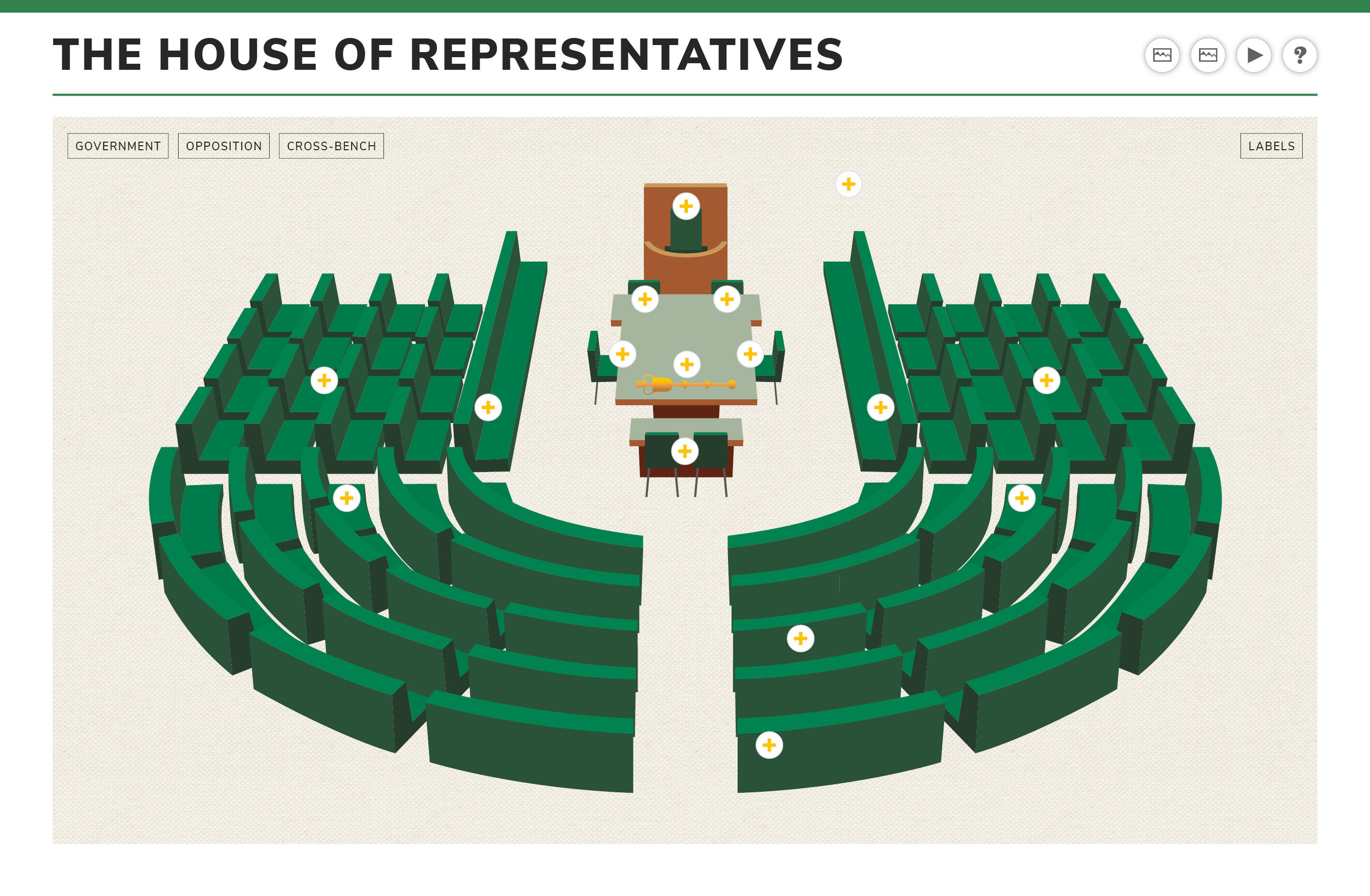The House of Representatives
Discover the people who work in the House of Representatives with this interactive poster. Highlight the groupings of members and test yourself on who sits where. Use the teaching notes and activities to support your students' learning.
Teaching notes and activities
Curriculum links
Year 6: ACHASSK143; ACHASSK146
Year 7: ACHCK048
Year 8: ACHCK062
Year 9: ACHCK075
Before you begin
Read the Australian Parliament fact sheet, which explores the structure and key functions of the Australian Parliament. It covers Parliament’s roles of law-making, representing Australians, the formation of government and checking the work of the government.
Then read the House of Representatives fact sheet, which includes information about the role, appearance and history of the House. The Mace fact sheet will help you to answer your students’ questions about the function, design and history of the Mace, an important symbol of the House of Representatives.
Getting started
These discussion starters are listed from easier to more complex. Choose the ones that work best for your class.
- What do you notice about the House of Representatives by looking at the interactive poster?
- The Australian Government is formed in the House of Representatives. Can you tell from looking at the poster how one team – and not another – becomes the government?
- Members of parliament (government, opposition, minor parties and independents) are elected – voted in – by the Australian people. Who are the non-elected people in the poster? How do they help the House of Representatives do its work?
- All the people elected to the House of Representatives have the important job of advocating – standing up for – the communities they represent. Can you think of a time when you represented someone? What did you do? What sort of qualities do you think a good representative might have?
Activities
Who represents you? activity
- As a class, find your local member by using the Senators and members page on the APH website. Read their first speech. Then discuss the following questions:
- How do they feel about being an MP?
- How do they describe their electorate?
- What ideas do they discuss and/or what stories do they tell?
- What changes would they like to see made in Australia?
- Ask students if there was an issue not included in their member’s speech which they think is important. Brainstorm a list of topics. Then, students write a letter or email to their local member that draws attention to the issue they care about.
House of Representatives research activity
- In groups, students research either the United States House of Representatives or the British House of Commons.
- Students create a diagram – such as a Venn diagram – to illustrate the similarities and differences between the house they have researched and the Australian House of Representatives.
- Discuss the diagrams as a whole class. There are many similarities because Australia was inspired by parts of both the United States and the United Kingdom houses of parliament. Do students think any of the differences identified would be beneficial to have in Australia? Which ones, and why?
Reflection
After looking at the interactive poster and completing some of the activities, discuss these questions with your class:
- Being a member of a political party means voting with your team on bills – proposed laws – the Parliament is discussing. Imagine you’re a member of parliament who is part of the government. Your party expects you to vote with them on a bill but you have received letters from the people in your electorate expressing strong views against the bill. What might you do in this situation? Why would you make this choice?
- The House of Representatives has seats for the general public and a press gallery for journalists. Why do you think the public and the media have a right to watch what happens in Parliament? Do you think keeping up with what happens in Parliament is a citizen’s responsibility? Why/why not?
- Because a team needs majority support in the House of Representatives to form government, it means the government is likely to win every vote. Why do the opposition, independents and minor parties turn up if they’re unlikely to win a vote?
